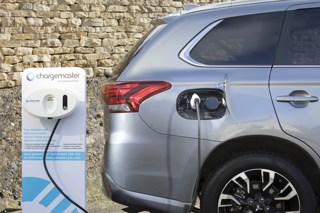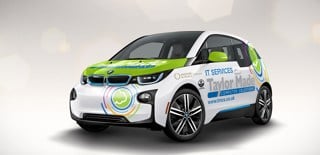Drivers require extensive education on the various electric and hybrid powered vehicles on the market before sales of alternative fuel vehicles (AFVs) will start to accelerate towards Government targets.
So says Newport Pagnell based CLM Fleet Management, part of the Maxxia Group, following research it commissioned last month which showed drivers’ knowledge of EVs and hybrids was woefully lacking.
The Government has announced recently that it wants all new cars and vans to be ‘near-zero emission’ by 2040, just 23 years from now. However, sales of AFVs, while still rising, are doing so only from a very small base level.
In October, sales of petrol-electric hybrids rose by 31% to 4,742 new units, compared with 3,618 new registrations in October 2016. However, this represented just 3% of the October new car market.
Plug-in electric cars, meanwhile, increased by 47% from 1,882 units in October 2016 to 2,764 new registrations this October, but were just 1.7% of the total new car market for the month.
In the CLM study, some 84% of respondents said they knew what the term AFV meant, but 82% of them did not currently run one.
When prompted, some 82% of respondents had heard of hybrid electric vehicles; 72% had heard of plug-in hybrid electric vehicles but only 61% had heard of battery electric vehicles and just 28% knew of hydrogen fuel cell electric vehicles.
The true level of knowledge was only unearthed when respondents were asked to match the various types of low emission vehicles against definitions of how they operated.
While 66% of motorists surveyed were able to correctly match the definition for battery electric vehicles, only 38% were able to match the definition for hybrid electric vehicles, 28% were able to match the definition of fuel cell electric vehicles and just 24% could successfully identify a plug-in hybrid electric vehicle from its definition.
Given the lack of knowledge of the various vehicle types available it was perhaps unsurprising that the percentage of drivers who were likely to opt for these types of vehicles as their next car was generally low.
Some 33% said that they were likely to consider a hybrid electric vehicle as their next car; 27% said they would consider a plug-in hybrid electric vehicle; while just 22% said they were likely to consider a battery electric vehicle.
However, it was also clear that diesel no longer figured prominently in their calculations with 68% of respondents saying they were unlikely to choose a diesel as their next car. Only 11% of drivers surveyed believed that petrol and diesel vehicles would still dominate UK new car sales in 20 years’ time.
The overall lack of knowledge amongst motorists was also reflected in their views regarding which vehicle manufacturers were the most dominant in the AFV market.
No one vehicle maker was singled out by respondents as being significantly more active than any of their competitors in the AVF arena, with Toyota gaining the most positive response.
Respondents also said they felt poorly informed regarding the key facts relating to owning and driving an electric vehicle. Some 49% said they felt ill-informed about the journey range of electric and hybrid cars and 53% about the availability and location of charge points.
Respondents felt particularly ill-informed about list prices, government grants and company car tax rules for electric and hybrid vehicles.
John Lawrence, recently appointed managing director at CLM, said the findings, while not surprising, were disappointing. He said: “Our results very much point to the fact that the industry as a whole has a lot of work to do in raising levels of awareness and understanding of the growing choices now available to motorists,” he said. “Only then will registrations of AVFs increase significantly beyond their current diminutive levels.
“Sales of AFVs are still at very low levels and account for less than 4% of the UK new car market. For Government targets to be reached, it requires a sea change in attitude and knowledge, as there are still clear concerns amongst motorists over affordability, range and charging points.
“Increased education would undoubtedly help this process and this is where fleet management providers like ourselves have a clear role to play in providing our customers with a clear and detailed analysis of the alternative fuel options available.”





















john4870 - 21/11/2017 12:17
And this is not helped by the 'children' employed as car sales 'experts' in so many main dealerships who have absolutely no idea. When I go into my Toyota or other dealerships I'm always educating them about the most basic facilities - amazing to think that most people still think the Prius (non-PHEV) needs to be plugged in! If we want to sell more you are quite right - it starts with educating drivers.